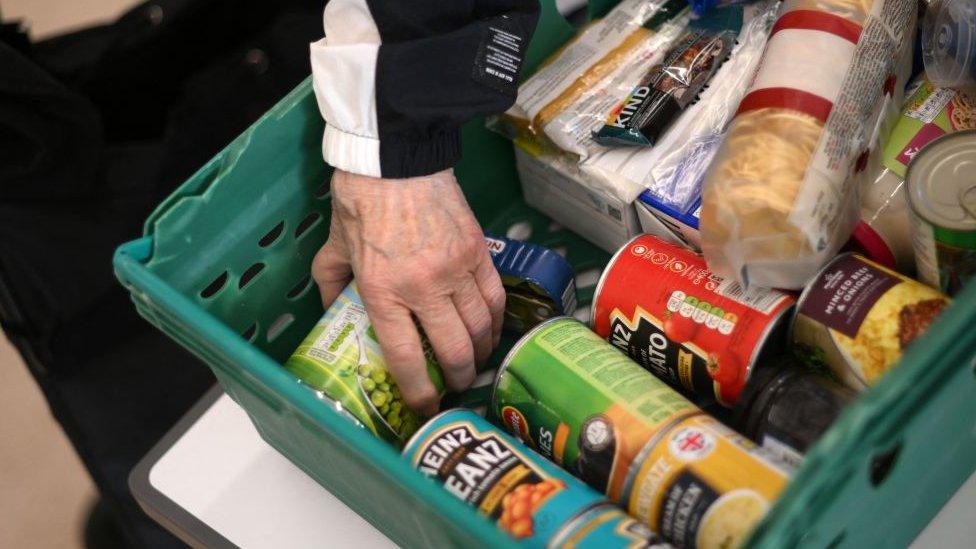Thousands more Scots living in very deep poverty - charity
- Published

The Joseph Rowntree Foundation said the growth of food banks reflects the rise of deep poverty
The number people in Scotland living in "very deep" poverty has gone up by about 50% in 25 years, new research suggests.
Anti-poverty charity the Joseph Rowntree Foundation found 150,000 more were living at this level.
However, the overall number of people below the poverty line had improved.
The foundation said 460,000 people in Scotland were living in "very deep" poverty from 2017 to 2020, up from 310,000 between 1994 and 97.
Very deep poverty is classified as having below 40% of the median household income.
The Joseph Rowntree Foundation said it was the equivalent of the population of Dundee falling into very deep poverty.
Associate director for Scotland, Chris Birt, said: "The story of poverty in Scotland over the past 20 years is a bleak contradiction that both the UK and Scottish governments need to wake up to.
"More people just below the poverty line have been pulled above it at the same time as those with the very least are falling further behind.
"This rise in very deep poverty can be plainly seen in the hundreds of thousands of food bank parcels provided across the country every year, as well as the growing gap in healthy life expectancy between the most and least deprived areas."
Minimum income guarantee
The charity said those most likely to be in very deep poverty include single person households, homes where someone has a disability and ethnic minority households.
The Joseph Rowntree Foundation called on the UK government to adopt a guarantee to ensure Universal Credit provides enough to cover the cost of essentials.
It also wants the Scottish government to accelerate efforts to create a minimum income guarantee.
A UK government spokesman said: "We have a plan to halve inflation this year and lay the foundations for long-term growth that will improve living standards for everyone.
"We have also uprated benefits by 10.1%, introduced an unprecedented increase to the national living wage and provided record levels of direct financial support for those most in need.
"We are also giving the Scottish government an extra £82 million to help people in Scotland with essential costs - this is in addition to the significant welfare powers they already have."
A Scottish government spokesman said that it would use the "powers we have to continue to tackle poverty in all its forms and protect people as far as possible from the harm inflicted by UK government policies".
"This includes providing free childcare and transport, delivering affordable housing, mitigating the UK government's benefit cap and bedroom tax, as well as using Scottish government benefits to support people, including through the game-changing Scottish Child Payment and the carers allowance supplement, two of seven benefits only available in Scotland."